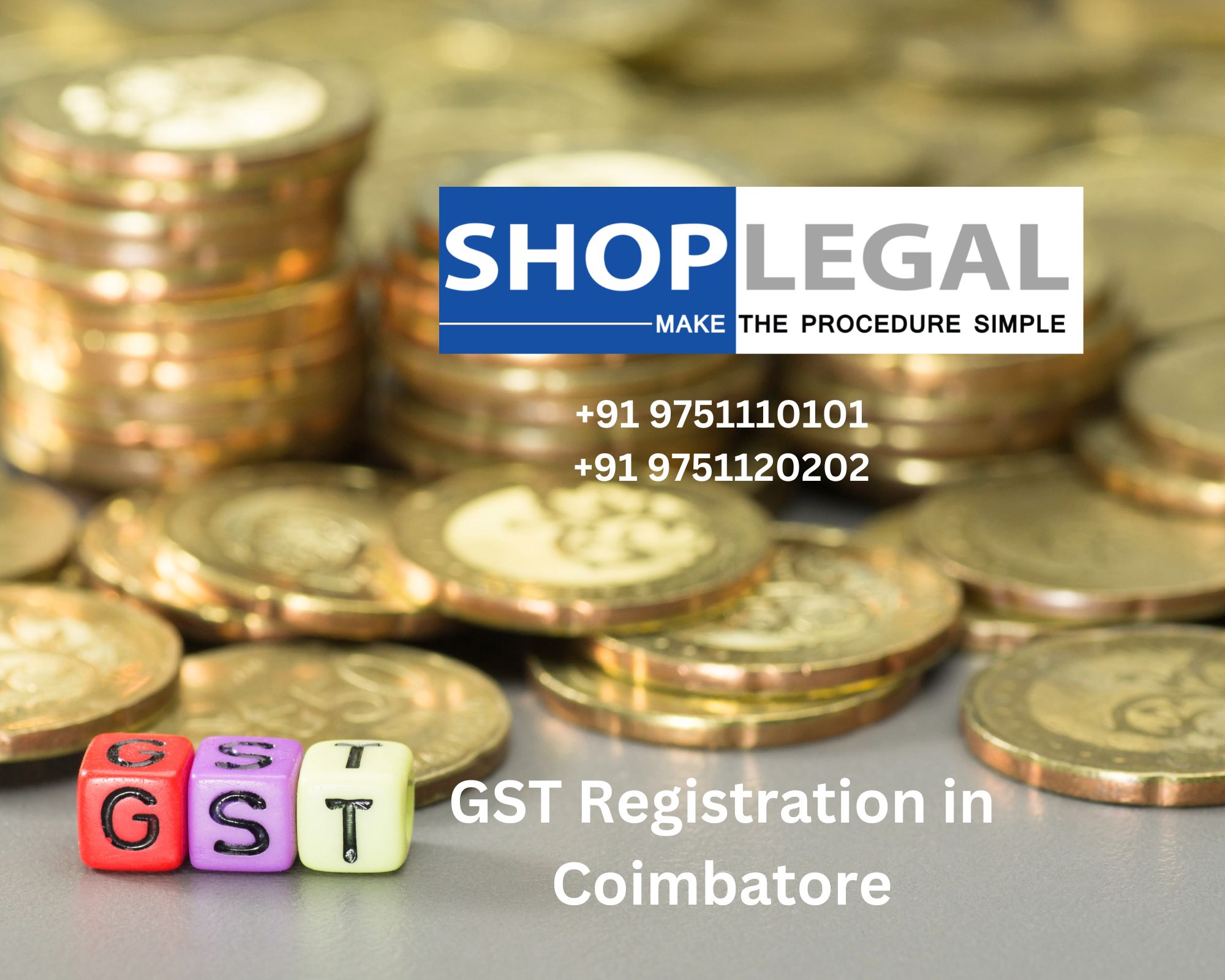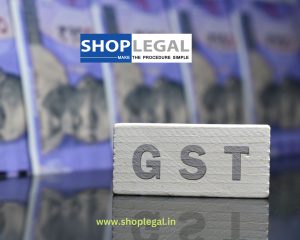GST registration in Coimbatore
TALK TO EXPERTS
One of India’s most significant tax reforms, the Goods and Services Tax (GST) was implemented on July 1, 2017. Because it is a value-added tax, only the value added during the manufacturing process is subject to taxation. A destination-based tax, where the tax is collected at the point of ultimate consumption, is another way to describe GST.
The various taxes that must be paid at each stage are collected in different ways by the central and state governments, and their rates vary from state to state.
India has thirty distinct tax laws, making it a legal nation.
The fact that almost every state had a different tax system led to procedural gaps and confusion in the tax structure.
A tax on tax was imposed and the flow of tax credits was restricted.
Since no additional state taxes will be imposed, it will be simpler to provide services and goods across the country when we talk about the GST because it will include all taxes.
GST Basics
From the manufacturer all the way to the end user, the supply of goods and services is subject to GST. The government collects the tax at each step of the supply chain and transfers it as a credit to the next step. This prevents the cascading effect of multiple taxes and ensures that the tax burden is shared equally among all supply chain participants.
All businesses whose annual revenue exceeds a certain threshold (INR 40 lakh for the majority of states, and INR 20 lakh for special category states) are subject to GST. Businesses below the threshold can choose to register for the GST on their own initiative.
In India, there are four GST rates: 5%, 12%, 18%, and 28%. The nature of the goods or services as well as their classification within the GST tariff determine the GST rate that is applied to them.
GST is a tax system that makes indirect tax compliance for businesses easier and more transparent. Additionally, it promotes a level playing field for all businesses and reduces the overall tax burden on consumers and businesses. GST registration in Coimbatore is done by experts in Shoplegal.
Eligibility to comply with GST
GST registration in Coimbatore requires following eligibilities.
- A person who, during a fiscal year, provides goods and/or services valued at more than INR 20 lakh.
- GST registration in Coimbatore is done to anyone who supplies taxable goods or services between states.
- Non-Resident Taxable Person who is required to deduct or collect tax (TDS/TCS) Input Service Distributor Person who is required to pay tax under the Reverse Charge Mechanism (RCM) Person who is supplying goods on behalf of another taxable person (e.g. Agent) E-commerce operator.
Most important components of GST
GST that has GST registration in Coimbatore has been implemented by the government under its Dual or Concurrent model. Consequently, the federal and state governments will both impose GST simultaneously.
- The Integrated Goods and Services Tax (IGST), a tax imposed by the Central Government on both intrastate and interstate supplies of goods and services, is the fourth section of the implemented GST structure.
- The Central Goods and Services Tax (CGST) is a tax imposed by the federal government on supplies of both goods and services made within a single state.
- A tax imposed by the state government on intrastate supplies of both goods and services is known as the State Goods and Services Tax (SGST).
- The Union Territory Goods and Service Tax (UGST) is a tax that is levied by the government of the Union Territory on supplies of both goods and services that take place within states.
Such GST can have GST registration in Coimbatore by the experts of Shoplegal .
Impacts of GST
India’s GST provided numerous advantages to businesses. By combining all of the previous indirect tax laws into one, the GST that has GST registration in Coimbatore simplified the indirect tax structure as a whole. In the past, excise was required for manufacturing, while VAT and CST were required for selling goods. The Service Tax Act was in effect when it came to services.
When a single transaction is categorized as both supplies of goods and services, complications ensue. Due to the cascading effect, the lapse of credit, and other factors, this also resulted in numerous instances of double taxation.
Thereby costing the registered individual money. After the introduction of the GST in India, all of these issues vanished. GST can have GST registration in Coimbatore very easily through online.
Impact on traders
People who specialize in the purchase and sale of goods are known as traders. Service providers are frequently included in the traders, who are considered to be trading in services.
The GST law has made it easier for traders to pay indirect taxes. The most significant effects of GST on India’s trading sector are as follows:
Previously, the trader was required to pay VAT if he sold goods within the state, whereas CST was required for interstate sales.
With GST that has GST registration in Coimbatore, however, sales within the state are subject to CGST and SGST, whereas sales outside the state are subject to IGST.

The concept remains the same for services trading as well. Whether the service is provided within or outside the state will determine the rate of GST.
The cascading effect is no longer present. Outbound supply of goods and services can be offset against the ITC on inward supply. The only restriction is that CGST cannot be offset by SGST. There is no cascading effect when the ITC is offset against output tax obligations, preventing double taxation.
Under GST which can get GST registration in Coimbatore, invoices must include all of the information required by the law. In addition, if the revenue is greater than Rs. Twenty crores, and then e-invoicing will be required.
For the purpose of transporting goods with a value greater than Rs. The e-way bill will be generated for 50,000.
GST impact on manufacturers
In India, the most common indirect tax on manufacturing was the excise law. However, GST will now apply following the law’s introduction. The effects of GST on India’s manufacturing sector are as follows:
The supply of goods is the point of taxation under the GST that can have GST registration in Coimbatore, whereas the removal of goods was the point of taxation under the previous excise law. Here, the idea remains the same: For supplies between states, IGST must be paid, while CGST and SGST must be paid for intrastate supplies.
Since manufacturers can use the ITC to purchase the raw materials necessary for the production and manufacturing of goods, production costs have decreased significantly.
Within the state, all factories must have a single registration. However, GST registration in Coimbatore used to be required for each factory, but that requirement is no longer there.
Previously, as a result of applying multiple laws, such as excise, VAT, and CST, Manufacturers were required to respond to lengthy inquiries and assessments. Manufacturers in India now find it much simpler to abide by the law since the introduction of the GST. They can have GST registration in Coimbatore at an affordable cost.
However, the most common manufacturer inquiry is, “Can manufacturers conduct trading in GST?”
Yes, that’s the answer! GST that has GST registration in Coimbatore is state- and taxpayer-specific, not product- or business-specific. As a result, a manufacturer can also engage in product trading. Under GST, you can continue only one activity based on the GST registration you obtained.
Benefits of GST registration
GST registration in Coimbatore has the following benefits.
All taxes under one
The primary objective of implementing GST in India and having GST registration in Coimbatore was to simplify the process and consolidate all indirect taxes under one roof. Additionally, it reduces the cheating to some extent. In the past, there was paperwork and room for excess.
The cost of using the online method is a little bit high, but at least their work is clear. In the past, there were a lot of scams involving indirect taxes, but now there are fewer of them.
Relief to small taxpayers
The tax amount cap does rise as a result of the additional advantage provided by GST which can have GST registration in Coimbatore. In the past, a businessperson who earned five lakhs annually was required to pay tax.
Small taxpayers were exempt from paying the tax when the GST having GST registration in Coimbatore was implemented because the limit is set at more than 20 lakhs. This way, business owners with lower incomes won’t have to worry about paying taxes based on their profits.
Online process
The process of paying the online GST registration in Coimbatore is straightforward and painless. Businesses like the construction industry had very disjointed tax positions before the law was enacted.
The work has become much more transparent and comfortable as a result of everything being done online. The online procedure will assist you in managing your time and relieve physical stress.
Things were different and paperwork was a problem when GST was not in place. Both the person using the facility and the one providing it faced challenges as a result.
All tax paid under one return
There used to be a long list of procedures that needed to be completed when GST was not in place, as mentioned above. Different taxes necessitated distinct returns from individuals.
The primary definition of GST having GST registration in Coimbatore is that it is one tax for all previous taxes; the filing of returns is simplified and reduced to a single document.
About Shoplegal
We Shoplegal the best service provider in town to offer GST registration in Coimbatore at an affordable cost. We are also involved in ROC, IPR, GST & IT.








